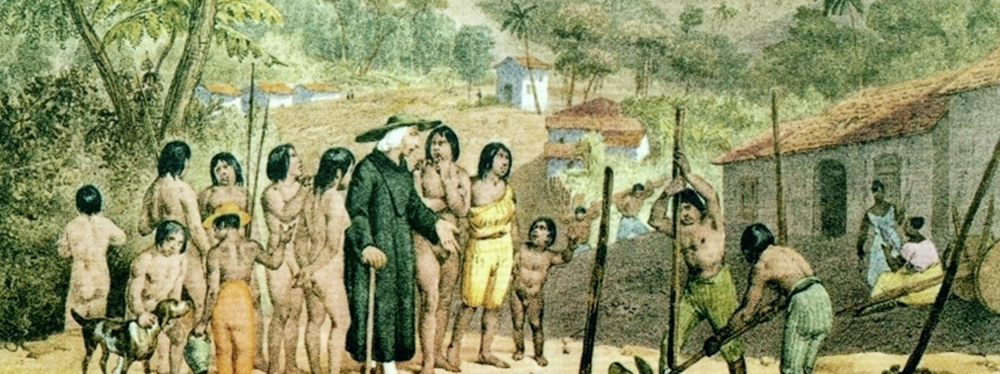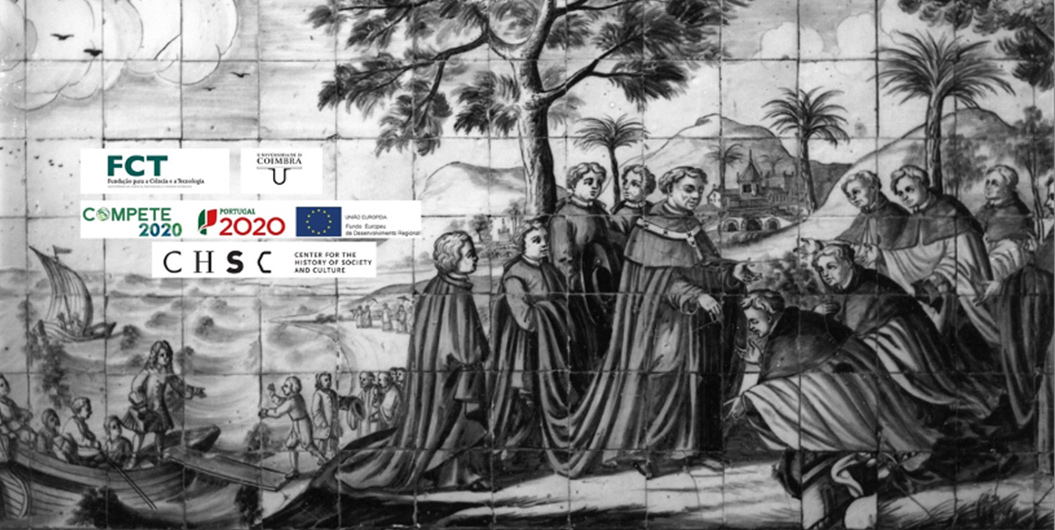
Coordinated Projects
- COMMEMORTIS – What survives after death? Parish communities and death commemoration strategies in the medieval city (completed)
(COMMEMORTIS – O que sobrevive depois da morte? Comunidades paroquiais e estratégias de comemoração dos mortos na cidade medieval, EXPL/HAR-HIS/0532/2021)
Project Coordinator: Maria Amélia Álvaro de Campos (PI) | Ana Isabel Sampaio Ribeiro (co-I)
Duration: 01.03.2022 – 29.02.2024
Funding: FCT – IC&DT projects in all scientific fields
EXPL 2021 History and Archaeology Evaluation Panel – 2021Value: €48.850
Is it possible to reconstruct a city’s parish communities from a computer-aided analysis of obituaries, wills and post mortem bequests that benefitted their churches? This issue is approached by combining a traditional topic in medieval European historiography – Death and the Economy of Salvation – and a modern, innovative methodology, specially designed for a social and prosopographical study of Historical and Microhistorical topics – the Timelink software. This information system processes personal data collected from historical sources. The project will be developed for 18 months, during which two of the nine medieval parishes of Coimbra will be analysed using this software. We will conduct training sessions, conferences, and scientific discussions to contextualise the case in the face of the parish networks uniting other towns in Portugal and Europe. The project’s plan and methodology are based on the intrinsic interdisciplinary nature of the Digital Humanities (Thaller 2012; Granjon 2016), reflected in two angles: the development of data analysis infrastructure; and the digital distribution of the results on a public domain website and in the form of research articles.
Official website: https://commemortis.wixsite.com/my-site
- Connect2Age: Unir gerações!
Researcher responsible: Pedro J. Barbosa da Silva
Duration: June 2024 to March 2025
Source of funding: 4th edition Promotion of Scientific Culture
Funding: 1.500€
Connect2Age aims to promote an interdisciplinary exchange of knowledge, boosting the communication of science to a target audience outside academia: the older population. We thus aim to contribute to the scientific literacy of the older population, providing them with opportunities to share experiences, acquire new skills and maintain their social and sociability connections, which are essential to their well-being. In addition to lectures/classes at Senior Universities and other social spaces, we will also produce a comic strip that will serve as a communication tool and will include information from the lectures and the views of the target audience.
Official website: under construction
- EdNoa
Edição e estudo de anais medievais portugueses (ongoing)Funding: Informal unfunded project
Coordination: Covadonga Valdaliso-Casanova (CH-ULisboa/Universidad de Alcalá), Filipe Alves Moreira (IFUP), Maria Amélia Álvaro de Campos (CHSC), Rodrigo Furtado (CEC)
CHSC members in the team: António Resende de Oliveira; Maria Helena da Cruz Coelho; Maria do Rosário Barbosa Morujão; Saul António Gomes
“The project EdNoa aims to create an electronic edition of the Livro da Noa, with documentary transcriptions linked to the manuscript’s images, historical and philological notes, glossaries, a bibliographical database, and several studies. The copies and the printed editions will also be transcribed, in order to better understand the transmission of the texts and the different approaches of the previous studies.” (Source: Project official website)
Website: https://ednoa.hypotheses.org/
- Imaginária: Participatory valuation and preservation of the sculptural heritage in the University of Coimbra’s Paço das Escolas (University Palace) (completed)
(Imaginária: valorização e proteção participativa do património escultórico do Paço das Escolas da Universidade de Coimbra, PCSI_663)
Principal investigator: Sandra Costa Saldanha
CHSC members in the team: Luísa Trindade, Joana Antunes, Diogo Lemos, Inês Pina, and Mariana Gaspar
Duration: 2021-2022
Funding: Projetos Semente de Investigação Científica Interdisciplinar (Seed Projects for Interdisciplinary Scientific Research), Strategic Area of Coimbra University in Heritage, Culture and Inclusive Society, sponsored by Santander Universities.
Value: €20.000
The project focuses on the interdisciplinary study of the sculptural heritage of the University of Coimbra’s Paço das Escolas (University Palace). Starting in exploring identity themes, it aims to strengthen critical thinking skills, apply sustainable conservation practices, test new models for interacting with the community, and foster the role of the arts as instruments for cultural heritage fruition and mediation.
Official website: Under construction
- RELIGIONAJE – Religion, ecclesiastical administration and justice in the Portuguese Seaborne Empire (completed)

ReligionAJE - Religião, administração e justiça eclesiástica no Império Português (1514-1750) PTDC/HAR-HIS/28719/2017 (RELIGIONAJE – Religião, administração e justiça eclesiástica no império português (1514-1750), PTDC/HAR-HIS/28719/2017)
Project coordinators: José Pedro Paiva (PI) | Jaime Ricardo Gouveia (Co-I)
Duration: 2018-2022
Funding: FCT/IC&DT (Scientific Research and Technological Development) Projects in all Science Fields
Value: €239.793
The project goal is to ascertain how the episcopate, its network of agents and its administrative and judicial structures became established, acted and encouraged the spread and shaping of Christianity in the Portuguese seaborne empire.
Official website: https://www.uc.pt/fluc/religionAJE
- RESTORY
Recovering Past Stories for the Future: A Synergistic Approach to Textual and Oral Heritage of Small Communities (ongoing)Coordinator of the international consortium: Adinel Ciprian Dinca (Universitatea Babes Bolyai, Romania)
Researcher responsible at the University of Coimbra: Maria Amélia Álvaro de Campos (CHSC)
Duration: 01.01.2024 – 31.12.2026
Source of funding: European Commission – HORIZON-CL2-2023-HERITAGE-01
Reference | Operation Code: 101132781.
Funding: €3,000,000.00
Funding at the University of Coimbra: 91.705.00€The project builds synergistically upon textual and oral stories to explore the past of small communities, with the goal of restoring the public’s emotional connection to discontinued traditions. In doing so, it pays greater attention to segments of cultural heritage that have long been overshadowed by monuments or sites of larger significance. Texts and interviews encapsulate expressions of collective agency, allowing current-day SSH academics to investigate those natural processes that gave prominence to the effective management of limited supplies of human and material resources. With a focus on schooling, recycling practices, and affective-based communication of group agents, RESTORY intends to investigate the formation of sustainable attitudes and strategies, learn from the lessons of the past, and integrate them into the future configuration of commitments. Ultimately, emulating the resource maximization frameworks intuitively designed by small-scale communities over a long period of time will allow the transfer of know-how from academia to local memory institutions, stakeholders, and citizens, contributing to the sustainable development of the continuously transformative heritage contexts. The research aspects of the project will consist of methodologically-hybrid case studies, targeting the textual and oral heritage of the communities inhabited in the past by Transylvanian Saxons, a group of German-speaking colonists settled about 800 years ago in nowadays Romania, in conjunction with 10 international case studies, all offering a wider range of expertise and accumulation of knowledge within the research target. RESTORY also presents the opportunity to attract cultural professionals from archives, museums, and libraries to training sessions designed to enhance the correct and comprehensive management, conservation, and capitalization of cultural heritage, all in relation to the needs of the wider public and administrative decision-makers at a local level.
Official website: https://restory-heritage.eu/
More information: https://cordis.europa.eu/project/id/101132781/en
https://www.uc.pt/administracao/dpa/investigacao/proj_cof/GA_101132781